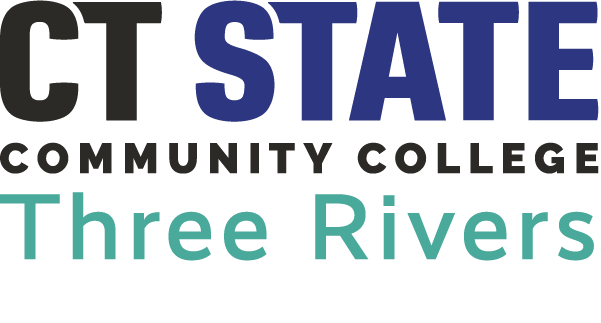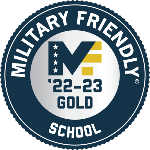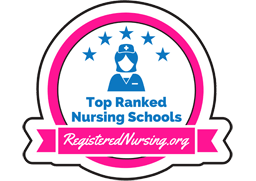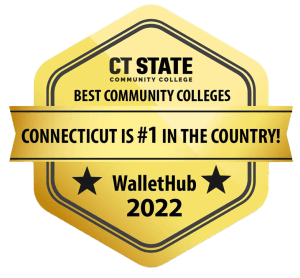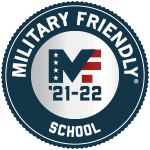In The News | As industries falter during COVID-19, one Eastern Connecticut initiative keeps filling jobs
Norwich, CT (The Bulletin, March 5, 2021) — Isabelle McKeon was 23 years old when she joined the Manufacturing Pipeline Initiative at Three Rivers Community College in Norwich.
It’s been nearly 3 years since she made the decision – changing careers from the massage therapy business because it wasn’t satisfying. Her mother, an employee at General Dynamics Electric Boat, told McKeon about MPI.
“I wanted something more consistent,” McKeon said.
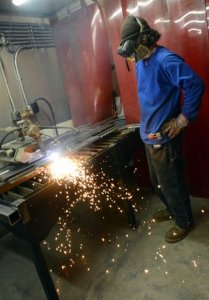
Dyaln Kinsella of Waterford uses a plasma cutter to bevel steel at the Welding, Metal Fabrication and Ship Fitting shop at Grasso Techinical High School in Groton. [John Shishman/NorwichBulletin.com]
“It just gives you so many options for paths you can go down for jobs,” McKeon said of the manufacturing pipeline.
McKeon was looking for job stability when she landed in advanced manufacturing – a field that has stayed resilient through the economic downturn COVID sparked.
In New England, the advanced manufacturing sector has experienced only a 4.8% decline during the pandemic, versus a 28% decline for leisure and hospitality, according to data from the U.S. Bureau of Labor and Statistics.
Mark Hill, the president and CEO of the Eastern Workforce Investment Board, describes the MPI program as “strong” even while training was shut down March through June during the early stages of the pandemic. Class sizes have shrunk, too, reduced from 14 to nine.
But Hill said the program has sustained 95% job placement among students in the program before and during the COVID-19 pandemic, and there will be five MPI classes running in April alone, the greatest number of MPI classes that EWIB has had running at the same time.“There’s demand for these people, and, from an economic sense, there’s a ripple that creates another set of jobs in the economy,” Hill said.
Defense industry a lifeline
Andrew Bond, vice president of human resources for Electric Boat, during a Feb. 18 talk hosted by U.S. Rep. Joe Courtney, said that General Dynamics Electric Boat, the primary builder of submarines for the U.S. Navy, will hire 1,100 in 2021 as it aims to move the production of the Columbia class submarine from the location at Quonset Point in Rhode Island to the Groton facilities sometime in 2024.
The Manufacturing Pipeline Initiative was created in 2016 as a way for more people of all age groups to enter the manufacturing industry.
The Eastern Advanced Manufacturing Alliance (EAMA) determines what jobs need to be filled in the industry, and then companies are able to tailor the curriculum of the MPI member schools and colleges to fill that need.
EWIB then connects graduating pipeline students to the companies, so they can decide who they want to hire.
“They know that the people graduating from our program graduated with the curriculum they approved,” Hill said.
Hill said the original goal for MPI was to create 400 jobs in three to four years of its founding. MPI has created more than 700 jobs in the first year of operation, and currently has created a total of 1,738 jobs.
There are some, including Courtney, who said the job-creating ability of MPI will be important in Connecticut’s job market recovery.
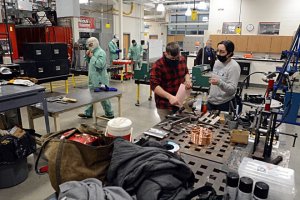
Job training at Three Rivers Community College Manufacturing Apprenticeship Center at Grasso Technical High School on Groton. [John Shishmanian/NorwichBullerin.com]
‘Fingers on the pulse’
TRCC and Quinebaug Valley Community College in Killingly are two of Connecticut’s colleges connected to the pipeline.
Mark Vesligaj, TRCC’s professor of engineering science and manufacturing campus director, said that educators, EAMA, EWIB and Electric Boat are able to communicate and work together on a regular basis – and it’s what makes the difference.
“We all have our fingers on the pulse,” Vesligaj said.
An important part of Three Rivers’ MPI efforts is the Manufacturing Apprentice Center at the Ella T. Grasso Technical High School in Groton that opened in 2019.
As a “flexible factory” the space has the equipment to do 10 different programs, and since it features equipment on wheels, it’s easy to readjust based on needs for a class. For things they can’t fit in the MAC, Three Rivers students can go and use some of Grosso High’s facilities, like for welding, when the high school’s students are away, making it cost-effective.
“There’s a big misnomer that manufacturing education is too expensive to do; it’s simply not true,” Vesligaj said. “If you do it right, you’re able to adapt to what industry needs, there’s an abundance of good work that can be achieved.”
At the MAC facility, Three Rivers Director of Manufacturing Brett Jacobson is one of the instructors. There have been some COVID-related changes with the classes, like having some subjects, like blueprint and math lessons, taught remotely, but the students still come to the MAC, with social distancing kept in mind.
“At the end of the day, the classes are hands-on, doing something,” Jacobson said.
Jacobson said that students are enticed by a job in advanced manufacturing because of how stable the work is, in no small part due to the $22.2 billion dollar contract for EB from 2019 to keep building submarines for the U.S. Navy until 2029.
“All of the publicity and action in our local contracts; I think that sends a pretty good message to folks that they have a lifelong career in some of this stuff,” Jacobson said.
Jacobson also said that unemployment and underemployment, especially during the pandemic, is also a driver for people without manufacturing experience to become students. According to EWIB, 80% of people enrolled in the MPI have no prior manufacturing experience, and the MPI graduates have higher retention than employees from other sources.
Even if someone learns manufacturing skills out of necessity, Jacobson said it doesn’t stop people from loving what they’re doing.
“One of the ladies came to me and said ‘Man, this is like arts and crafts on steroids,’” Jacobson said.
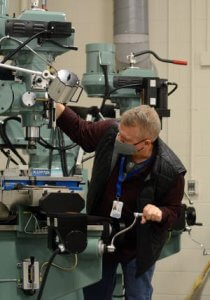
Bret Jacobson, manufacturing director at Three Rivers Community College Manufacturing Apprenticeship Center, demonstrates a Bridgeport milling machine at Grasso Technical High School in Groton. [John Shishmanian/NorwichBulletin.com]
When the pandemic hit a year go and workers across the state and country began seeing major impacts to businesses, McKeon hardly flinched.
“We were considered essential (workers), so that is something I didn’t have to worry about, which I am thankful for,” McKeon said.
It’s one of the reasons advanced manufacturing can appeal to people. Jodi Clark, assistant director for QVCC’s Advanced Manufacturing Technology Center, said there are many more.
Clark said it can change the lives of people in tough situations, from getting a well-paying job for people struggling to get a roof over their head, to people rebuilding their lives after spending time in prison.
“In my eight years, I have so many success stories,” Clark said.
The QVCC facilities also have a wide range of tools available for students to learn with, including manual lathes and bench work areas. Clark said the QVCC program is split into two parts, with the first semester aiming to get students used to manufacturing fundamentals and teaching students how to follow a blueprint while making parts, math and other soft skills needed.
In the second semester, students use and make computer programs for CNC routers, and then the program helps students land a job, with QVCC’s own programs matching MPI’s rate.
“We’re not required to get our students jobs, but what’s the sense in teaching these students if they don’t end up getting a job,” Clark said.
Support for advanced manufacturing education is still going strong at QVCC, with the college awarded in January a $15,000 grant from the Gene Haas Foundation for the Advanced Manufacturing Center for the fifth time.
“We’re getting more and more companies interested in hiring our students, since there’s such a huge need for employees that at least know a little bit of something,” Clark said.
For all the work that has been done in the program, Hill said the colleges have been great partners for their ability to turn inexperienced people into viable employees.
“Those are huge building blocks for why the pipeline program is so successful,” Hill said.
McKeon said for people who aren’t sure if they want to join the MPI program, they can take a lesson from her: it’s never too late to switch careers, and skills can be applied elsewhere.
“You won’t outgrow it,” McKeon said.
— By Matt Grahn, Bulletin staff writer
The original article can be found here: “As industries falter during COVID-19, one Eastern Connecticut initiative keeps filling jobs”
